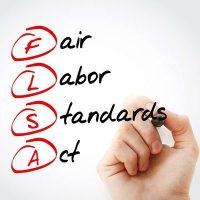Unpaid Overtime Is Illegal In New York

In certain industries, it is not uncommon for employees to be asked – or even forced – to work overtime without being paid for their time and effort. Many will treat this as simply a part of their job – but in reality, unpaid overtime is a form of wage theft, and it is illegal under both New York and federal wage & hour law. If you have been forced to work overtime without proper compensation, you may be able to file suit to get what you are owed.
Required By Law For Many Employees
The federal Fair Labor Standards Act (FLSA) establishes a 40-hour workweek as ‘standard’ for most employees, though there are exceptions in certain industries. If an employee makes an hourly wage or is otherwise not exempt from overtime pay, they are entitled to time-and-a-half for every hour worked beyond the first 40. Failure to receive that is wage theft, and creates a cause of action for the employee against their employer.
New York’s Labor Law and the state’s Wage Theft Prevention Act (WTPA) codifies this under state law, but goes a bit further: in some cases, employers may actually be criminally charged for failing to provide ‘benefits and wage supplements’ that have been previously agreed upon (wage supplements are benefits like paid sick leave or reimbursement of expenses). In addition, other types of wage theft are explicitly defined as violations of the Act, such as appropriation of tips or illegal deductions.
Can I Receive Overtime Pay?
Before you file a complaint for unpaid wages or wage supplements, it is crucial to make sure that you are actually eligible to receive overtime pay. Overtime laws are designed to protect potentially vulnerable workers, such as those in blue-collar jobs, or specialized white-collar jobs like practical nurses and paralegals. Because many other employees are either salaried or are not in a position where they can easily be taken advantage of, federal and/or state laws will exempt them from the ability to receive overtime pay – for example, most professional employees (those with specific certifications requiring a “prolonged course” of study) are exempt, as are most executive employees like CEOs.
If you are eligible to receive overtime pay, you may file a complaint with the state Labor Department to seek what you are owed. Keep in mind, however, that many claims will not be accepted if you are simultaneously pursuing a private lawsuit against your employer – to recover in both instances would be a windfall for you, which the law works to try and avoid. It is generally a good idea to pursue one avenue, and then if that is not successful, to pursue another.
Contact A New York Employment Law Attorney
Most employees put in a good-faith effort to do their job to the best of their ability, and that effort should be rewarded. If you suspect that you have not been paid for the work you have done, calling a New York City unpaid overtime attorney from Mansell Law, LLC can help you decide how best to proceed with your case. Contact us today at (646) 921-8900 for a free consultation.
Source:
dol.gov/agencies/whd/flsa
